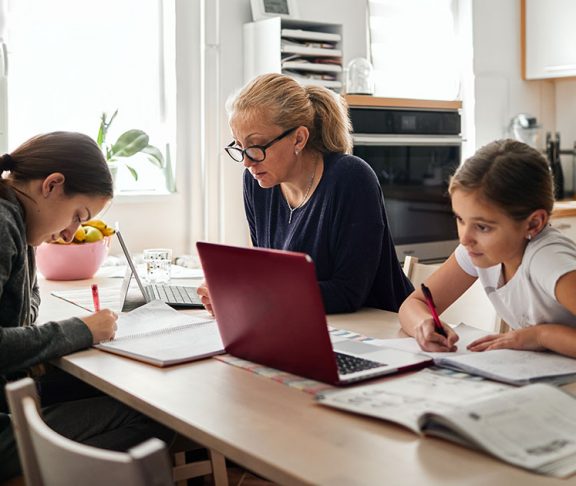Surviving COVID

Most would agree that there has never been a time like this in our lifetimes. Early in 2020 when the pandemic arrived, we had no idea how long we would be living among the uncertainties. Nearly two years later, families are still managing all the curve balls thrown at them. This has all become so common that we often lose sight of the weight this type of long-term stress can have on our families and us.
Dr Kelly Newby, a licensed clinical psychologist and owner of a psychotherapist office in Greece, understands the weight of living with COVID. Newby emphasizes the importance of validation during this time. “Validating how hard this is, is important.” Twenty-four months of still being flexible at every given moment and losing so much control of our day-to-day lives is weighing heavy on many, especially in families and children. Newby stresses the importance of validating what the children are facing as well as what adults are enduring. “Don’t minimize how all this uncertainty has impacted our lives. Have conversations, ask questions, help children open up and listen,” Newby said.
Here is a list of suggestions that can help you open up communication with your children, and help validate their feelings.
1) Minimize the time the news is on.
2) Embrace after school activities and extra curricular opportunities.
3) Get back to church or faith based programs that help build hope.
4) Find community so that you do not feel alone. Set up regular social events.
5) Create choices and control where you can. Give your family choices with options on what they want to be involved in, what activities i.e. ski club or horse camp.
6) Give extra love when they are having a difficult day.
Adults also need to be aware of the impact of stress during the pandemic.
1) Check in with other adults, make sure family members & friends are OK.
2) Initiate social events. Fight the tendency to isolate.
3) Get involved! Whether it be community groups, volunteering or exercise groups. Get involved and get active.
4) Self care. Take care of you, prepare yourself a special healthy meal, take time to read a good book, exercise, meditate or get outdoors for fresh air and a walk.
5) Do not hang on to toxic emotions. Release anger and resentment. Work through the emotions with someone you trust, or seek professional help to process and move through to the other side.
6) Don’t fall into the mindset of feeling like a failure. Recognize we are all going through some type of trauma from COVID, and we are still going through it.
Dr. Newby encourages parents, especially single parents, to seek support among their friends and family. Embracing one another during extended periods of uncertainty is so important. Having community helps us feel that we are not alone. Getting children to open up can be challenging. As depression and anxiety exceed record levels, Dr. Newby finds that parents may fear that asking about the issues makes the problem worse, she says it is the opposite. Listening to their feelings helps them not feel alone, especially if they are struggling. If you or a family member are showing signs of depression or anxiety, it is suggested that you talk with your family physician and consider speaking to a mental health therapist. Take the necessary steps for you, and your family, to thrive and not merely survive.





